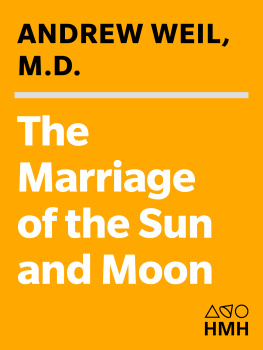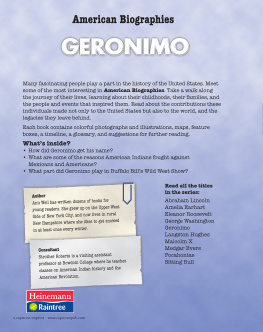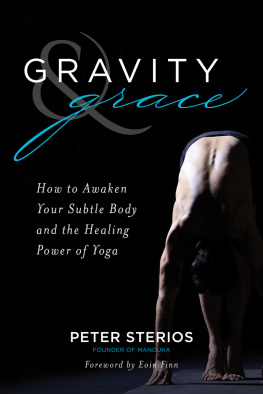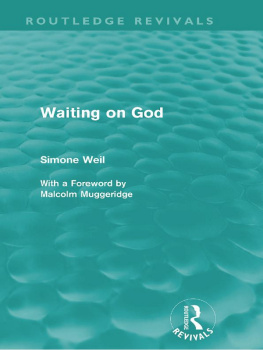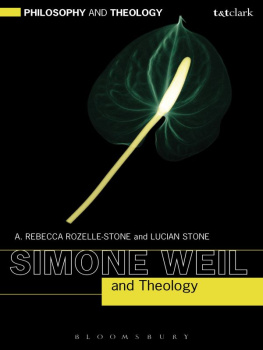Weil - Gravity and grace
Here you can read online Weil - Gravity and grace full text of the book (entire story) in english for free. Download pdf and epub, get meaning, cover and reviews about this ebook. City: New York, year: 1952, publisher: Routledge;Putnam, genre: Science. Description of the work, (preface) as well as reviews are available. Best literature library LitArk.com created for fans of good reading and offers a wide selection of genres:
Romance novel
Science fiction
Adventure
Detective
Science
History
Home and family
Prose
Art
Politics
Computer
Non-fiction
Religion
Business
Children
Humor
Choose a favorite category and find really read worthwhile books. Enjoy immersion in the world of imagination, feel the emotions of the characters or learn something new for yourself, make an fascinating discovery.
Gravity and grace: summary, description and annotation
We offer to read an annotation, description, summary or preface (depends on what the author of the book "Gravity and grace" wrote himself). If you haven't found the necessary information about the book — write in the comments, we will try to find it.
Gravity and grace — read online for free the complete book (whole text) full work
Below is the text of the book, divided by pages. System saving the place of the last page read, allows you to conveniently read the book "Gravity and grace" online for free, without having to search again every time where you left off. Put a bookmark, and you can go to the page where you finished reading at any time.
Font size:
Interval:
Bookmark:

Gravity and Grace
One of the most profound religious thinkers of modern times.
The Twentieth Century, 1961
Time and again she pierces the veil of complacency and brings the reader face to face with the deepest levels of existence.
Church Times
We must simply expose ourselves to the personality of a woman of genius, or a kind of genius akin to that of the saints.
T. S. Eliot
The best spiritual writer of this century.
Andr Gide
The light Simone shines makes everything seem, at once, reassuringly recognizable and so luminous as to be heavenly.
Malcolm Muggeridge
In France she is ranked with Pascal by some, condemned as a dangerous heretic by others, and recognized as a genius by all.
New York Times Book Review

Routledge Classics contains the very best of Routledge publishing over the past century or so, books that have, by popular consent, become established as classics in their field. Drawing on a fantastic heritage of innovative writing published by Routledge and its associated imprints, this series makes available in attractive, affordable form some of the most important works of modern times.
For a complete list of titles visit
www.routledgeclassics.com
Simone
Weil
Gravity and Grace
First complete English language edition
With an introduction and postscript by Gustave Thibon
Translated by Emma Crawford and Mario von der Ruhr

La Pesanteur et la grce first published 1947
by Librairie PLON, Paris
First English edition published 1952
by Routledge & Kegan Paul
First published in Routledge Classics 2002
by Routledge
2 Park Square, Milton Park, Abingdon, Oxon O14 4RN
711 Third Avenue, New York, NY 10017
Routledge is an imprint of the Taylor & Francis Group, an informa business
1947, 1999 Librairie PLON
Translation of Chapter entitled Israel and Postscript 2002
Mario von der Ruhr
Typeset in Joanna by RefineCatch Limited, Bungay, Suffolk
All rights reserved. No part of this book may be reprinted or reproduced or utilised in any form or by any electronic, mechanical, or other means, now known or hereafter invented, including photocopying and recording, or in any information storage or retrieval system, without permission in writing from the publishers.
British Library Cataloguing in Publication Data
A catalogue record for this book is available from the British Library
Library of Congress Cataloging in Publication Data
Weil, Simone, 19091943
[Pesanteur et la grce. English]
Gravity and grace / Simone Weil; translated by Emma Crawford and Marion von der Ruhr. 1st complete English language ed. / with an introduction and postscript by Gustave Thibon
p. cm.
ISBN 0415290007 (alk. paper) ISBN 0415290015 (pbk : alk paper)
1. Meditations. I. Title.
B2430.W473P413 2002
194 dc21
2002031674
ISBN 10: 0415290007 (hbk) ISBN 13: 9780415290005 (hbk)
ISBN 10: 0415290015 (pbk) ISBN 13: 9780415290012 (pbk)
CONTENTS
INTRODUCTION
I find it hard to make public the extraordinary work of Simone Weil. Hitherto I have shared with only a few special friends the joy of knowing her personality and her mind, and now I have the painful impression of divulging a family secret. My one consolation lies in the certainty that through the inevitable profanation of publicity her testimony will reach other kindred souls.
I find it still harder to be obliged, in introducing this work, to speak incidentally of myself. Secretum meum mihi: the absence of reticence among many modern writers, the taste for autobiography and confession, the habit of admitting the public to the innermost recesses of an intimacy stripped of all reserve have never failed to surprise and scandalize me. Yet I owe it to myselfwere it solely to justify the appearance of my name at the head of these papersto explain the exceptional circumstances through which I came to know the real Simone Weil and to have the undeserved honour of presenting her thoughts to the world.
In June 1941 the Reverend Father Perrin, a Dominican friend then living at Marseilles, sent me a letter which I do not happen to have kept but which ran more or less as follows: There is a young Jewish girl here, a graduate in philosophy and a militant supporter of the extreme left. She is excluded from the University by the new laws and is anxious to work for a while in the country as a farm hand. I feel that such an experiment needs supervision and I should be relieved if you could put her up in your house. I had to think this letter over. Thank God I do not suffer from any a priori antisemitism, but what I know from experience of the qualities and faults of the Jewish temperament does not fit in any too well with my own and is particularly ill-adapted to the demands of everyday life together. There is an equally wide divergence between my instinctive reactions and those of a militant supporter of the extreme left. Moreover I am a little suspicious of graduates in philosophy, and as for intellectuals who want to return to the land, I am well enough acquainted with them to know that, with a few rare exceptions, they belong to that order of cranks whose undertakings generally come to a bad end. My first impulse was therefore to refuse. The wish to fall in with the suggestions of a friend, an unwillingness to spurn a soul which Destiny had placed in my path, the halo of sympathy surrounding the Jews as a result of the persecutions from which they were beginning to suffer, and, on the top of all this, a certain curiosity, made me change my mind.
A few days later Simone Weil arrived at my house. At first our relationship was friendly but uncomfortable. On the concrete plane we disagreed on practically everything. She went on arguing ad infinitum in an inexorably monotonous voice and I emerged from these endless discussions literally worn out. I enveloped myself in an armour of patience and courtesy in order to bear with her. Then, thanks to the privileges of a life which is shared, I gradually discovered that the side of her character which I found so impossible, far from revealing her real deep nature, showed only her exterior and social self. In her case the respective positions of being and appearing were reversed: unlike most people she gained immeasurably in an atmosphere of close intimacy; with alarming spontaneity she displayed all that was most unpleasing in her nature, but it needed much time and affection, and a great deal of reserve had to be overcome, before she showed what was best in her. She was just then beginning to open with all her soul to Christianity, a limpid mysticism emanated from her; in no other human being have I come across such familiarity with religious mysteries; never have I felt the word supernatural to be more charged with reality than when in contact with her.
Such mysticism had nothing in common with those religious speculations divorced from any personal commitment which are all too frequently the only testimony of intellectuals who apply themselves to the things of God. She actually experienced in its heart-breaking reality the distance between knowing and knowing with all ones soul, and the one object of her life was to abolish that distance. I have witnessed too much of the daily unfolding of her existence to be left with the slightest doubt as to the authenticity of her spiritual vocation: her faith and detachment were expressed in all her actions, sometimes with a disconcerting disregard for the practical but always with absolute generosity. Her asceticism might seem exaggerated in our century of half-measures where, to use the words of Lon Bloy, Christians gallop with due moderation to martyrdom (and, indeed, how great a scandal would be caused today by the eccentric practices of certain medieval saints?); nevertheless, it was free from any emotional excess and it was impossible to discern any change of level between her mortification and her inner life. Finding my house too comfortable, she decided to live in an old half-ruined farm belonging to my wifes parents and situated on the banks of the Rhne. Every day she came to work and, when she deigned to eat, she had her meals with us. Though delicate and ill (she had suffered all her life from intolerable headaches, and an attack of pleurisy some years before she came to us had left its mark upon her) she worked on the land with tireless energy and often contented herself with blackberries from the wayside bushes for a meal. Every month she sent half her ration coupons to the political prisoners. As for her spiritual gifts, she distributed them with even more lavish generosity. Every evening after work she used to explain the great writings of Plato to me (I have never had time to learn Greek thoroughly). She did this with such educative genius that her teaching was as living as an original creation. Moreover she would put the same enthusiasm and love into teaching the rudiments of arithmetic to this or that backward urchin from the village. Her thirst to cultivate minds even led to some amusing misunderstandings. A kind of high-level equalitarianism led her to measure the capabilities of others by her own. There was scarcely anyone whom she did not consider able to receive the highest teaching. I remember a young working-class Lorraine girl in whom she thought she had detected signs of an intellectual vocation and to whom she poured forth at great length magnificent commentaries on the Upanishads. The poor child nearly died with boredom, but shyness and good manners prevented her from saying anything.
Next pageFont size:
Interval:
Bookmark:
Similar books «Gravity and grace»
Look at similar books to Gravity and grace. We have selected literature similar in name and meaning in the hope of providing readers with more options to find new, interesting, not yet read works.
Discussion, reviews of the book Gravity and grace and just readers' own opinions. Leave your comments, write what you think about the work, its meaning or the main characters. Specify what exactly you liked and what you didn't like, and why you think so.


